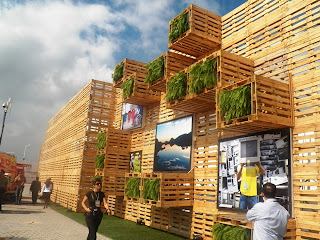By Ms. Kathleen Leewai, SPREP
15 June 2012, Rio de Janeiro -- The Pacific Network on Globalisation (PANG) was featured at a Women Rio+20 side event this morning.
 |
| Maureen Penjueli (middle) from PANG, presenting on a panel |
Represented at the event by their coordinator, Ms. Maureen Penjueli, PANG’s message to the conference is that there is a need to change mindsets about the root causes of our crisis.
“There needs to be a recognition in Rio that the crisis we’re faced with is linked to the current model of development which is about endless, unlimited growth,” said Ms. Penjueli.
“A second key message is the need for political will and commitment to ensure that we set the world on a path that is going to lead us to sustainability.”
Speaking about how the conference could affect local communities in the Pacific, Penjueli said that it would depend on if the root causes of unsustainable development and that the way forward is a discussion of alternative forms of economies.
“The models we are looking at are around bridging the subsistence economy with the cash economy, and we are finding very strong examples in Vanuatu and also in Papua New Guinea where there are lots of women still engaged with traditional farming.”
She says that these have shown that small scale subsistence livelihood projects are important as they have shown improvement in quality of life for women in the Pacific.
PANG is a small regional NGO based in Suva, Fiji, that works specifically on critiquing current development models and dealing with trade agreements such as the World Trade Organisation agreements, economic partnership agreements, and the Pacific Agreement on Closer Economic Relations (PACER Plus) and to what environmental impacts these agreements pose to island economies.
Organised by the Women in Europe for a Common Future (WECF) of the Women’s Major Group to Rio+20, the side event showcased presentations from 7 countries; Kazakhstan, Bolivia, Cambodia, Fiji, the Niger Delta, Sudan, and Guatemala.





















